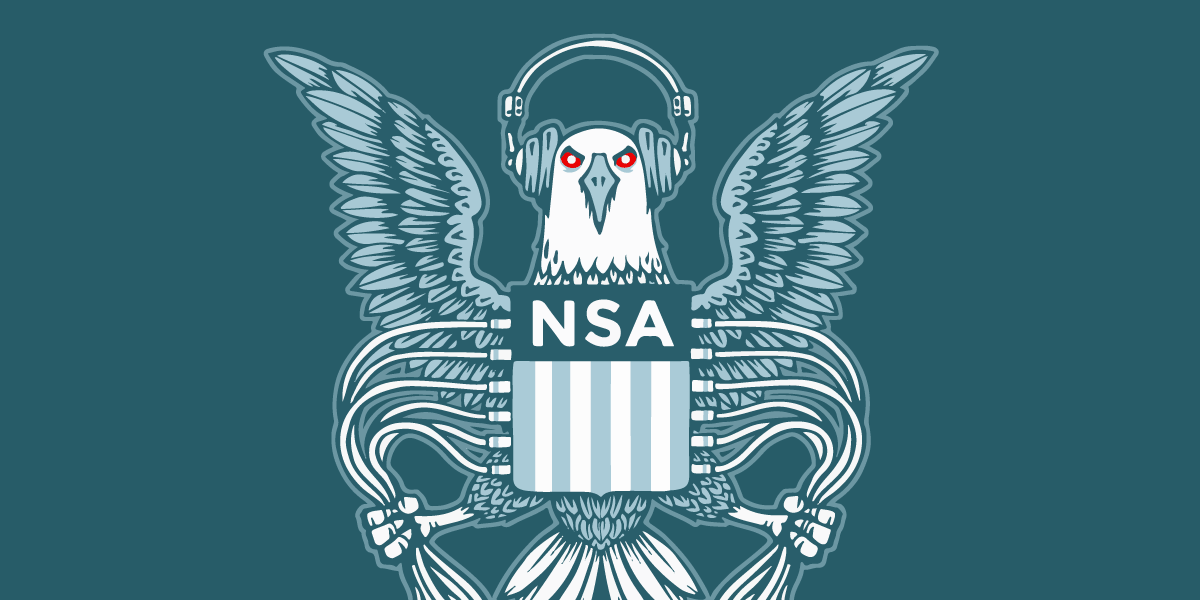
Later this week, the House of Representatives is once again voting on whether or not to extend the authorities in Section 215 of the PATRIOT Act—a surveillance law with a rich history of government overreach and abuse, along with two other PATRIOT Act provisions, and possibly, an amendment.
Congress considered several bills to reauthorize and reform Section 215 earlier this year, but the law expired on March 15 without renewal. In the days before that deadline, the House of Representatives passed the USA FREEDOM Reauthorization Act, without committee markup or floor amendments, which would have extended Section 215 for three more years, along with some modest reforms. However, the Senate failed to reach an agreement on the bill, allowing the authorities to expire.
As we have written before, if Congress can’t agree on real reforms to these problematic laws, they should remain expired. A savings clause in the expired law gives intelligence agencies some, limited ongoing ability to use the authority, and the government has plenty of other surveillance tools at its disposal. Allowing the law to expire rather than rush into extending the authorities was a positive step.
But rather than hold hearings to determine what additional reforms are needed, earlier this month, the Senate considered amendments to the bill the House passed in March. The Lee-Leahy amendment, which passed overwhelmingly, would strengthen the provisions regarding the Foreign Intelligence Surveillance Court’s (FISC) appointment of amici, outside experts to independently analyze surveillance requests that are particularly sensitive.
Another amendment, sponsored by Senators Wyden and Daines, failed 59-37, one vote short of the required 60. This amendment would have clarified that Section 215 cannot be used to obtain an individuals’ Internet browsing or search history.
In our view, it was already clear that Section 215 could never lawfully be used to obtain browsing and search history information. Numerous courts, including the FISC itself, have found that browsing and search history constitute the “content” of communications. And, as the Supreme Court in Riley v. California explained, “Internet search and browsing history, for example, can be found on an Internet-enabled phone and could reveal an individual's private interests or concerns — perhaps a search for certain symptoms of disease, coupled with frequent visits to WebMD.” This data implicates an individual’s reasonable expectation of privacy, and a warrant is therefore required. In light of this precedent, it is difficult to imagine Internet companies complying with a Section 215 order for browsing history, given that most companies—including Google, Facebook, Comcast, and other giants—require the government to produce a warrant before handing over the contents of communications. And even if the government did seek to use Section 215 in this way, the FISC would be obligated to appoint an amicus to argue against this novel interpretation of the law; any opinion the FISC reached would need to be declassified and released (and no opinion like that exists, to our knowledge). So, while it was already clear to us that Section 215 could never allow the government to collect such information, the Wyden-Daines amendment would have made this crystal clear.
After the Wyden-Daines amendment failed, the Senate passed the underlying bill 80-16, and sent it back to the House once more. Given that the Wyden-Daines amendment only failed by one vote, it’s no surprise that lawmakers on the House side are pushing for a vote on a similar amendment. Now called the Lofgren-Davidson Amendment, House leaders have made a deal to consider the amendment and are working with the sponsors on final text. Both the Lofgren-Davidson amendment and the underlying bill are expected to be on the House floor later this week.
If the amendment and the underlying bill passes the House, the Senate would have to approve the new language before the bill gets sent to the President for his signature.
Congress should feel no pressure to reauthorize any of the provisions. Even without Section 215, the government still has a wide range of surveillance tools at its disposal, and Congress should take the time to ensure that meaningful reforms— reforms that address the torrent of surveillance abuses that have come to light over the past year— are added to the bill. The Lee-Leahy amendment and the Wyden-Daines amendments are commonsense additions. But they do not cure the bill’s underlying shortcomings or fix some of the most egregious problems with FISA. Congress should make additional changes to the legislation to ensure that our national security surveillance laws are not abused and adequately protect civil liberties.
"again" - Google News
May 27, 2020 at 05:49AM
https://ift.tt/2ZFfPmn
The House Is Voting on Section 215, Again. The Bill Still Needs More Reform - EFF
"again" - Google News
https://ift.tt/2YsuQr6
https://ift.tt/2KUD1V2
Bagikan Berita Ini














0 Response to "The House Is Voting on Section 215, Again. The Bill Still Needs More Reform - EFF"
Post a Comment